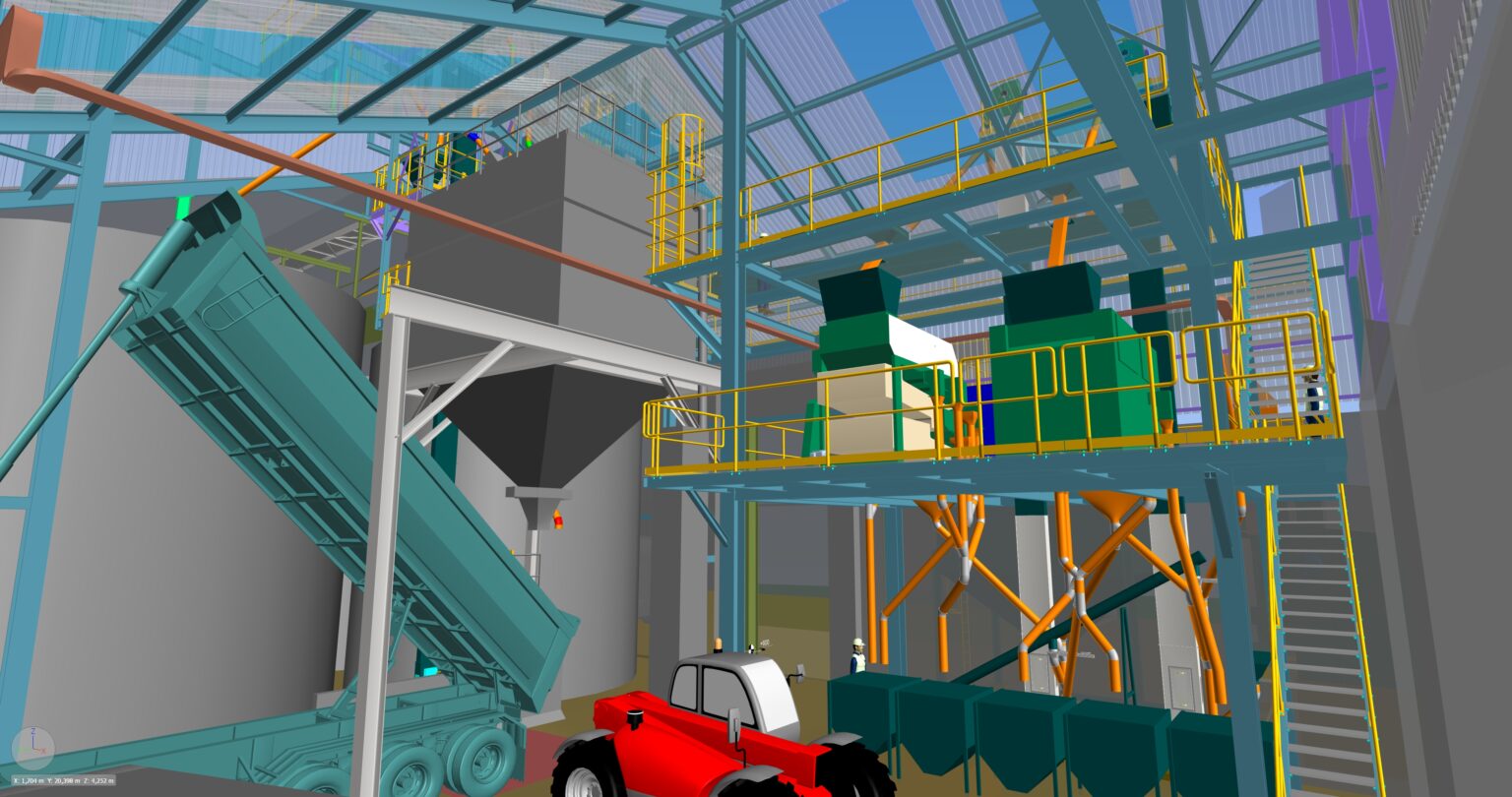SCAM is a Walloon agricultural cooperative supporting over 4,000 farms through a network of 44 depots across the region. To meet the growing demands of the organic animal feed sector, SCAM saw an opportunity to develop a dedicated grain treatment facility designed to clean, sort, and dry organic cereals to the highest standards.
The Braives depot, strategically located, was chosen as the site for this transformation. In close collaboration with SCAM, Polytek initiated a study to design a technically and economically viable solution that would integrate seamlessly into the existing infrastructure.

The Braives facility is a blend of old and new, with some sections dating back more than a century. Due to regulatory and budget constraints, the external walls had to be preserved. However, these walls were not guaranteed to support the new loads, which led to a series of civil and structural challenges requiring both creativity and precision.
A second challenge came from the nature of the grain treatment process itself. The facility operates as a gravity-driven system, where grains need to be lifted by elevators and then routed downwards through ducts to equipment. The further the destination, the higher the grain needs to be lifted to maintain the slope. Optimizing available space to fit equipments as close as possible while minimizing the elevation of the new structure (such as conveyors, screws, and elevators) was key to achieving cost efficiency.
Finally, the project had to meet strict budget limits. Balancing cost considerations with practicality and profitability was a constant challenge throughout the process.
Polytek stepped in as SCAM's trusted multidisciplinary partner to bring the vision to life. One of the key tools in this project was 3D scanning, which played a crucial role in ensuring a precise fit between the new building and the existing structure. We developed multiple design scenarios, each with different trade-offs, and refined them in parallel to find the optimal solution.
Once we had a clear concept, we moved to the basic design phase, evaluating the feasibility and profitability of the project. Throughout the process, operability and ease of maintenance remained at the forefront of our approach. Set of technical documentation ready for procurement, ensuring a clear path to execution.
Just as a successful harvest begins with careful planting, a successful industrial project starts with a detailed and thoughtful design process. Through close collaboration with SCAM, Polytek once again demonstrated its flexibility and expertise across industries and challenges. We are proud to be a part of SCAM’s journey and look forward to supporting them through the next phases, from groundbreaking to the first grain delivered.
We work closely with clients from the very beginning. That way, we know exactly what you need, you feel heard and supported, and we can use our collective skills to solve the puzzle. This is a team effort, and a strong start is half the battle.
By focusing on digital processes, we minimise waste, optimise resources, and reduce the ecological footprint of industrial projects. Also, we design for longevity. By making sure everything is well-made and well-maintained, we reduce the need for renovations or replacements.
Industrial projects are complex and rely on many variables. Challenges and questions are bound to arise. Our project managers are here to guide you through it all, with expert advice, troubleshooting, and, if necessary, just a bit of tough love.
Not your machinery or hardware (although we help with that, too), but the different elements and stakeholders involved in your construction project. We always take a bird’s-eye view, so all moving parts are in sync.